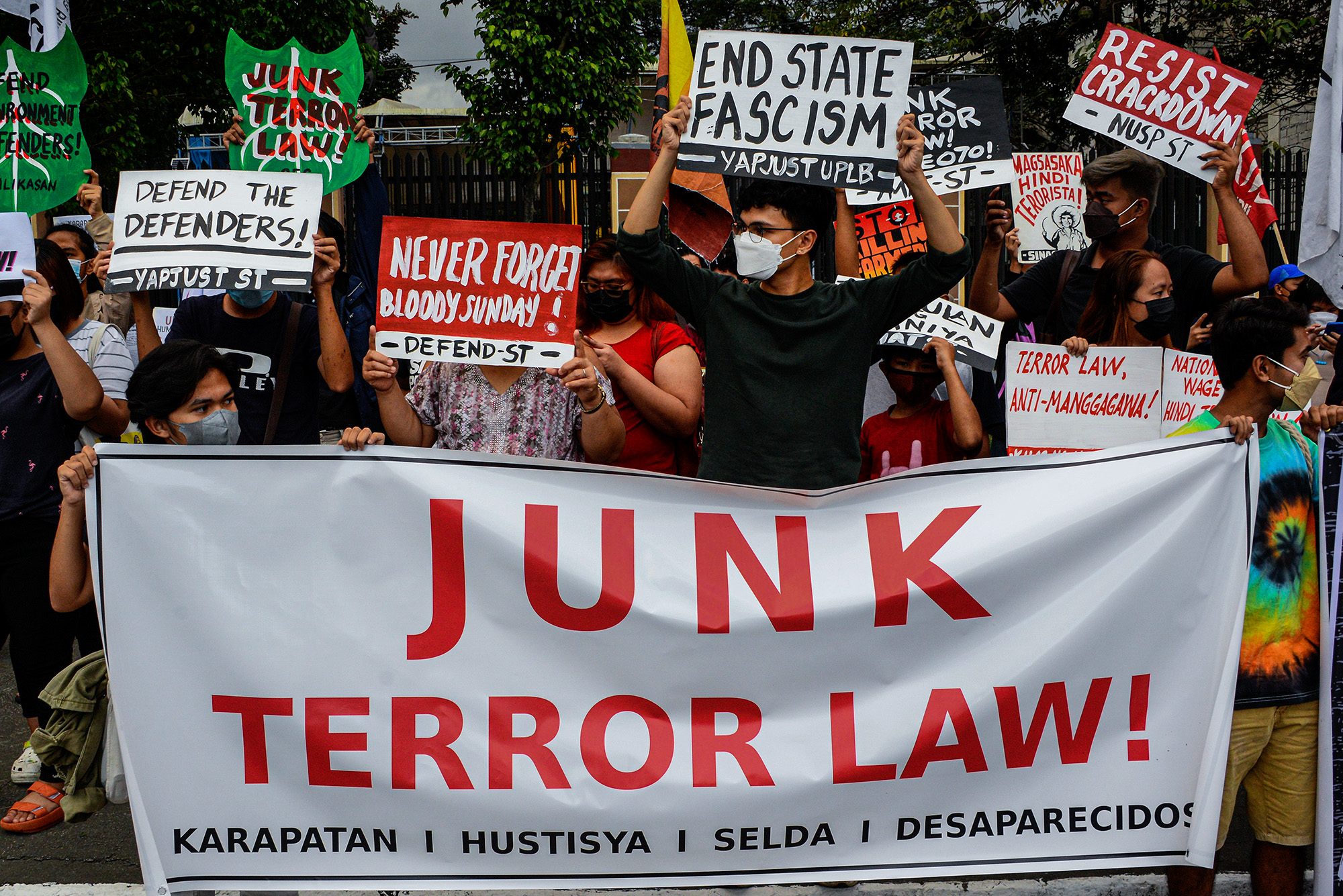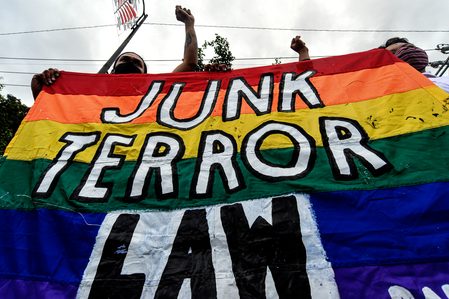SUMMARY
This is AI generated summarization, which may have errors. For context, always refer to the full article.

MANILA, Philippines – The Philippine Supreme Court has declared unconstitutional the power of the anti-terror council (ATC) to designate a person or a group as terrorists based on a request by another country.
In partially granting the petitions against the feared anti-terror law, the Court struck down “the second method” of designation under Section 25.
The Court voted 9-6 on this issue. They voted Tuesday, but announced it on Thursday, December 9.
The second mode, now voided, would have given authority to the anti-terror council to designate a person or a group as a terrorist upon request by other countries, and upon determination that it meets the criteria of the United Nations Security Council Resolution.
With this, the Supreme Court retained the third mode, which many activists consider dangerous. The third mode is an arbitrary power of the ATC to designate without going to trial, based only on their own determination during proceedings held in secret, and without asking the designee for counter-evidence.
Also retained is the first mode, or the automatic designation of people and groups which are already on the UN Security Council list.
Petitioners contested designation for usurping the powers of the court.
What fueled fears further was Solicitor General Jose Calida‘s final submission to the Supreme Court, saying designation will stand even if a court junks a proscription petition. A proscription is a process distinct from designation, with the former needing a trial for it to take effect, but with the same goal of tagging a person or a group as a terrorist.
The overlapping powers of designation stoked fears the penalties could go far in restricting certain freedoms.
The National Democratic Front of the Philippines (NDFP) had been designated as a terror group. It heightened fears of political dissenters associated with the NDFP – or those who served as consultants in peace talks – that they would be the next targets.
The Supreme Court also declared as unconstitutional the so-called killer caveat of the anti-terror law which would have made dissent or protest a crime if it had an intent to cause harm.
Petitioners and their lawyers said that while sriking down the killer caveat eased fears, it remains to be a dangerous law. Rights groups said the law still has “deadly consequences.”
The Supreme Court upheld most of the feared law, including the contested provision on 24-day warrantless detention.
A full copy of the decision is yet to be released.
President Rodrigo Duterte and his allies in Congress rushed to pass this law during the pandemic in 2020.
With the law upheld, albeit some powers voided, the Philippines joins Southeast Asian neighbors Hong Kong, Thailand, and Singapore to have legislation widely seen as a crackdown on dissent, as democracies are threatened around the world.

– Rappler.com
Add a comment
How does this make you feel?






There are no comments yet. Add your comment to start the conversation.